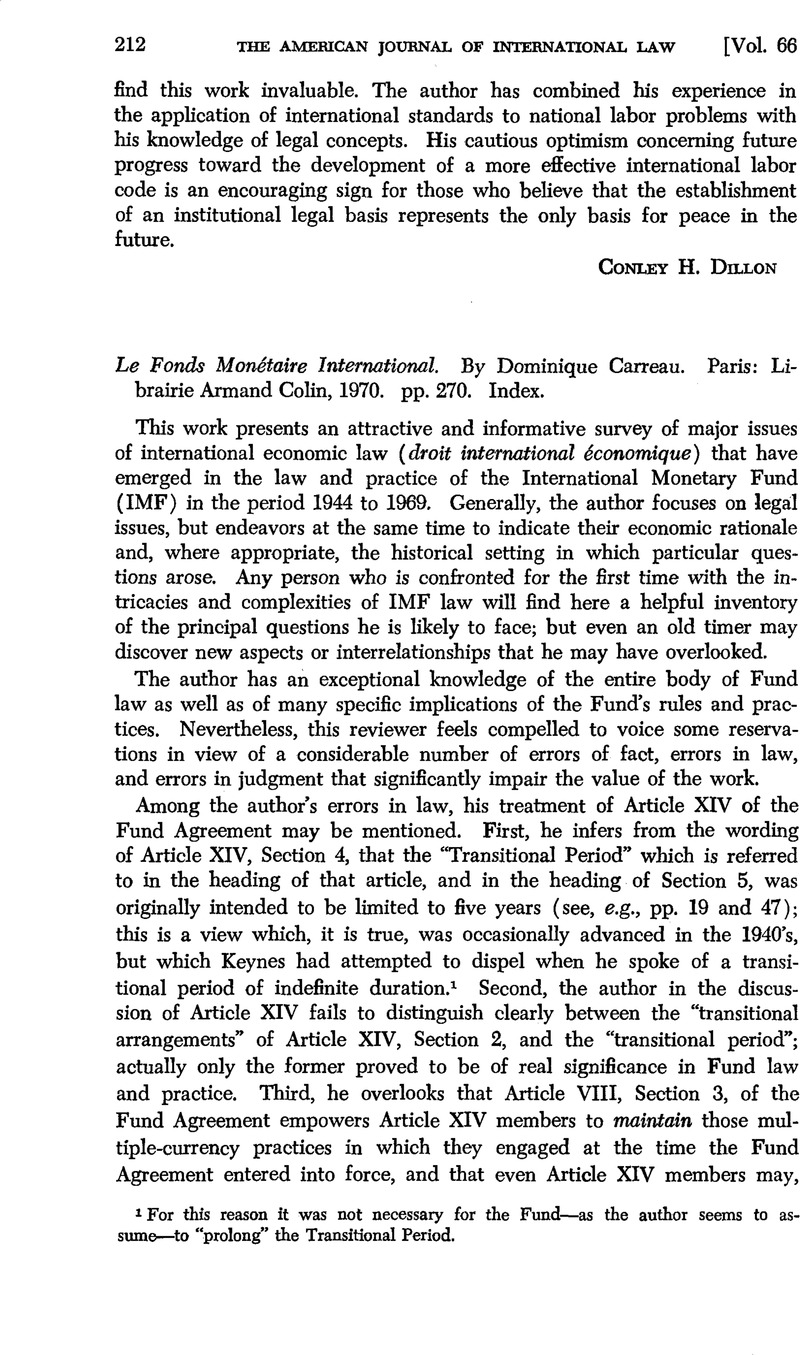No CrossRef data available.
Article contents
Le Fonds Monétaire International. By Dominique Carreau. Paris: Librairie Armand Colin, 1970. pp. 270. Index.
Published online by Cambridge University Press: 28 March 2017
Abstract

- Type
- Book Reviews and Notes
- Information
- Copyright
- Copyright © American Society of International Law 1972
References
1 For this reason it was not necessary for the Fund—as the author seems to assume—to “prolong” the Transitional Period.
2 In Fund practice, the right of a member to avail itself of the transitional arrangements of Art. XIV, Sec. 2, which at the outset was reserved to original members, has also been extended to other than original members.
3 In favor of the proposition that stand-by arrangements are international agreements governed by public international law, see Fawcett, J. E. S., “The Place of Law in International Organization,” in 36 British Yearbook of International Law 339–340 Google Scholar; see also U. Kirdar, The Structure of United Nations Economic Aid to Underdeveloped Countries at 162 (The Hague, 1966), and J. D. Kramer, Die Rechtsnatur der Geschafte des Internationalen Wahrungsfonds at 104–109 (Berlin, 1967). It should be noted that Carreau employs throughout the term “accords de confirmation (stand-by agreements)” rather than the term used in Fund parlance: “accord de credit—‘stand-by’ (stand-by arrangement).”




